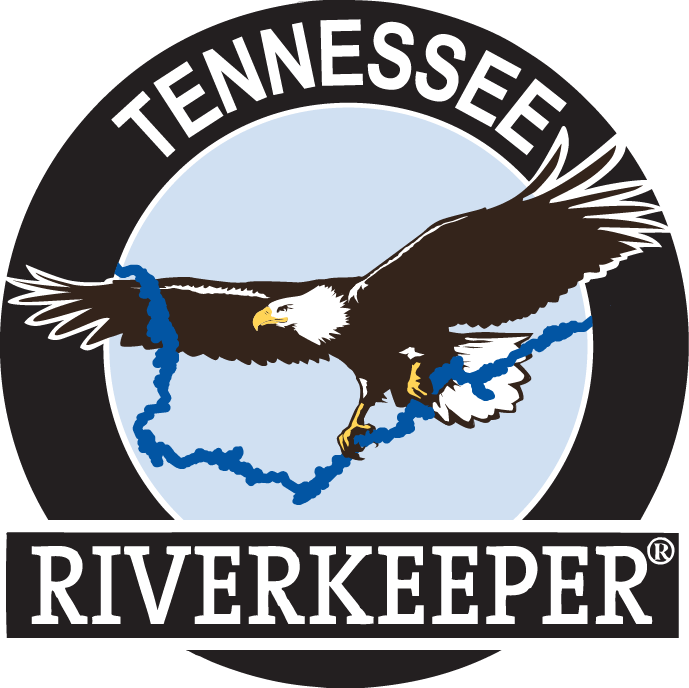Tennessee RIVERKEEPER Served Notice of Intent to Sue the Operators of Gilliam Creek Waste Water Treatment Plant In Arab, Alabama
November 6, 2010. Decatur, Alabama (view as PDF)
CONTACT:
David Whiteside (Executive Director, Riverkeeper): (205) 527-7595 - DWhiteside@TennesseeRiver.org
Mark Martin (Prosecuting Attorney): (205) 516-9350 - MMartin@TennesseeRiver.org
or please visit our web site at www.TennesseeRiver.org
## For Immediate Release
On November 5, 2010, Tennessee Riverkeeper served notice of its intent to sue the operators of Arab Gilliam Creek Waste Water Treatment Plant (WWTP) located in Marshall County, Alabama for violations of the Clean Water Act. Tennessee Riverkeeper’s notice of intent to sue is based on illegal discharges into Gilliam Creek of the Tennessee River. Riverkeeper’s notice lists 700 violations of the federal Clean Water Act since April 2007. These violations occurred at the Arab Gilliam Creek Waste Water Treatment Plant (National Pollution Discharge Elimination System (NPDES) Permit No: AL0056626) located in Arab, Alabama in Marshall County. The WWTP has violated its permit by illegally discharging excessive amounts of fecal coliform, solids, and nitrogen, between April 2007 and September 2010. The WWTP has also had problems with dissolved oxygen concentration levels in their discharges between November 2007 and August 2010.
Based on information and belief, Arab Gilliam Creek Waste Water Treatment Plant is owned and operated by City of Arab and City of Arab Sewer Board. Based on information and belief, the City of Arab Sewer Board is an unincorporated municipal board formed and controlled by the City of Arab. The City of Arab therefore bears the ultimate responsibility for the violations set out herein. Tennessee Riverkeeper, Inc. intends to file a lawsuit under section 505 of the Clean Water Act (CWA), 33 U.S.C. 1365, against City of Arab and City of Arab Sewer Board, for violations of the CWA and the Alabama Water Pollution Control Act (AWPCA), §22-22-1 et sec, Code of Alabama 1975.
Additionally, public records provided by Alabama Department of Environmental Management do not include discharge monitoring reports for the months of August 2009 and May 2007, and includes an incomplete report for the month of June 2010. Any violations occurring during these months will be added to the prosecution. Riverkeeper, upon information and belief, also alleges that Arab Sewer Board has underreported Fecal Coliform monthly average values for the months of April 2007 up to and including the present date. Any monthly average violations revealed through discovery will be added to the prosecution. Additionally, Riverkeeper alleges that Arab Sewer Board reports weekly averages for Total Residual Chlorine instead of the permit requirement of reporting maximum daily values, with the result that exceedence of maximum daily values above the 0.01 mg/L limit may go unreported. Any violations revealed through discovery will be added to the prosecution.
Hope Coal Company received a NPDES permit from the Alabama Department of Environmental Management (ADEM) to operate the Meredyth Mine effective November 1, 2007. Their first reported water discharge was in the month of May 2008. Shortly afterward, in August 2008, they committed their first permit violation by discharging total suspended solids at twice the permitted daily maximum level and three times the monthly average permitted level. Since then, and continuing to the present, they have committed at least one discharge violation each month except one, October 2008, in which there was no discharge at all. They have committed multiple and persistent violations for total suspended solids and iron.
These are very serious violations with total suspended sediment levels reaching 24 times the permitted limits and total iron levels at almost five times the allowable levels. TSS measures the total suspended solids in water. When it is 24 times higher than the permitted limit it can reduce the penetration of light in the water column, clogging the gills of fish and other aquatic life, making it impossible for them to breathe. High sediment loads in streams from coal mines can be particularly toxic because they often contain high levels of heavy metals. High TSS, combined with high iron violations, literally means this company is polluting at a level that has the potential to choke the life out of Allen Mill Creek and Butler Falls branch, tributaries of Bear Creek, which flows into the Tennessee River.
Alabama's permit requirements for coal mines are notoriously lax. Coal mines are well known dischargers of many harmful pollutants including selenium, aluminum, mercury, arsenic, lead, chlorides, sulfates, and total dissolved solids, in addition to the four that Meredyth Mine is required to test for: pH, Total Suspended Solids, Iron and Manganese. Testing for conductivity and toxicity is also required in many states, but not Alabama. Meredyth Mine has discharged 24 times the permitted level of TSS and almost 5 times the permitted level of iron. It has violated its lax permit over 2,000 times. It is impossible to know the amounts of harmful pollutants which have been discharged yet have gone undetected due to the lax permit with its lax monitoring requirements.
FOR MORE INFORMATION: Please refer to the attached 60-Day Letter of Intent to Sue
### Tennessee Riverkeeper was created by David Whiteside and Mark Martin. David Whiteside serves as Executive Director and Riverkeeper. Whiteside
founded non-profit Black Warrior Riverkeeper in Alabama in 2001. Whiteside is the great nephew of Judge Frank M. Johnson, Jr. (of Haleyville) who fought to desegregate the South; Whiteside is also the godson of Robert F. Kennedy, Jr., who serves as the President of the Waterkeeper Alliance, of
which Tennessee Riverkeeper is a member. Mark Martin serves as prosecuting attorney for Tennessee Riverkeeper. Mark Martin is an environmental attorney with 29 years of legal experience, including over 10 years enforcing the Clean Water Act and other environmental laws. Mark Martin was named a Sierra Club Legal Hero for his work. Tennessee Riverkeeper is governed by a Board of Directors.



